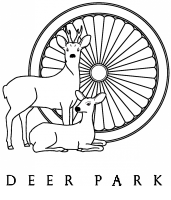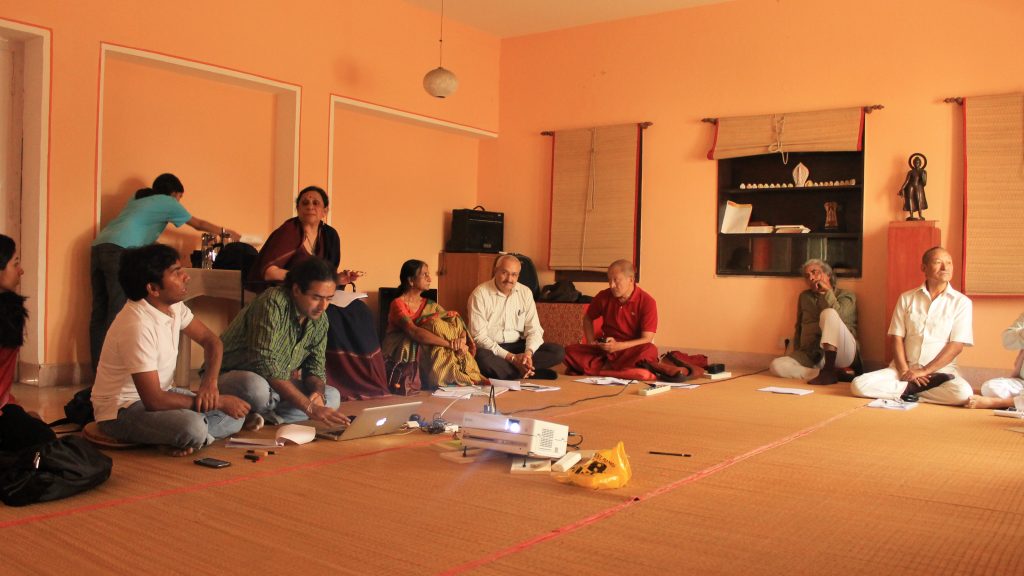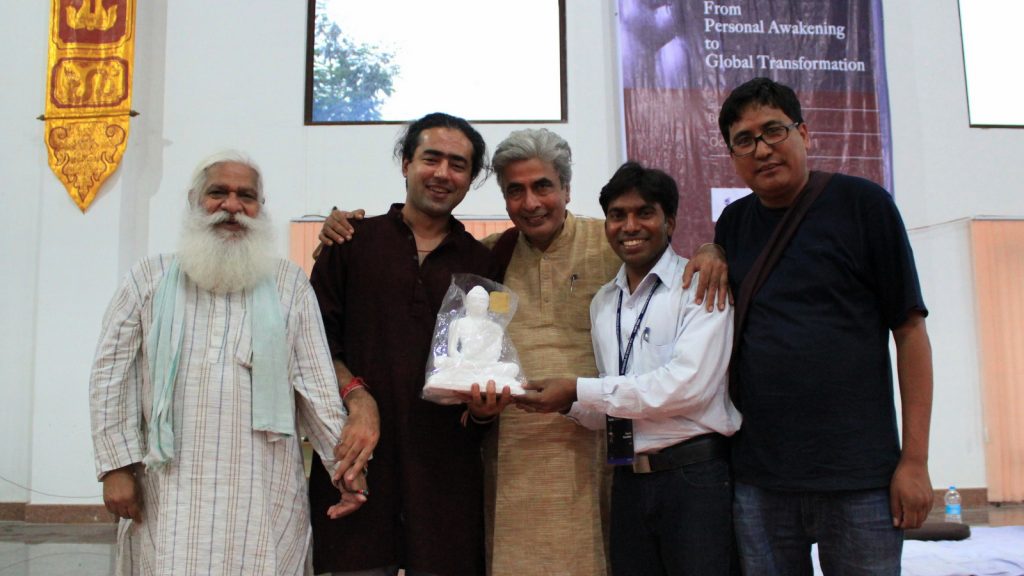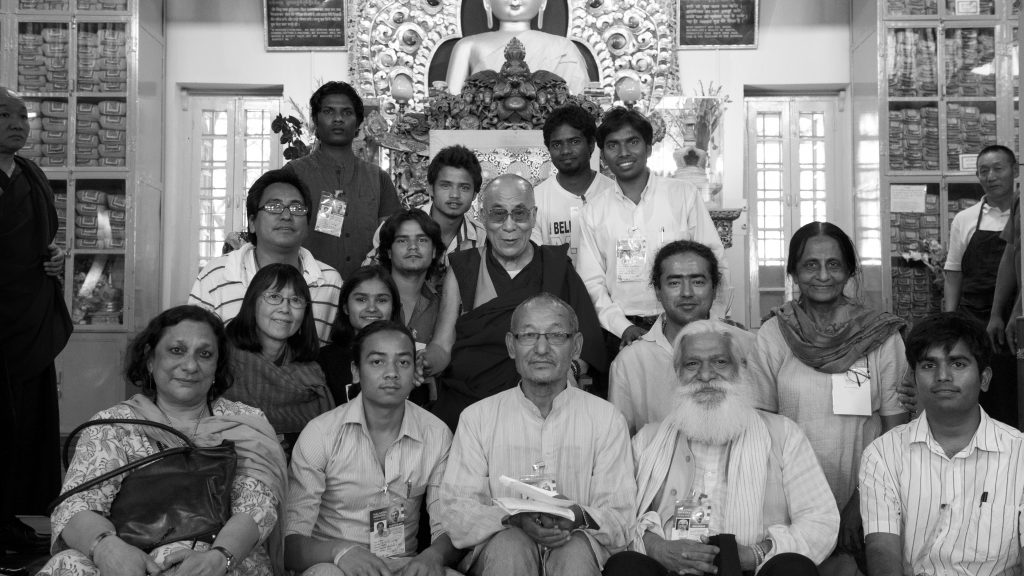History
In 2006, Dzongsar Jamyang Khyentse Rinpoche, a world renowned Buddhist teacher and film maker, transformed a former Buddhist college (Dzongsar Institute) in the Indian Himalayan foothills into a centre with a new vision for ancient learning: the Deer Park Institute. This name invokes the example of the Buddha’s first teachings at the historic Deer Park, the ‘Mriga Dava’ in Sarnath, India, where the Buddha first shared a spirit of bias-free enquiry into the nature of mind, existence and suffering.
The Institute was founded under Siddhartha’s Intent Society, a registered society under the Societies Act, 1860 with charitable status.
In March 2006, Khyentse Rinpoche inaugurated Deer Park with a simple ceremony in the Indian tradition, replete with sacred chants in Sanskrit. He then conducted the Institute’s first teachings, on the ‘Sutra of the Recollection of the Three Jewels.’ With this, Deer Park began its journey as a school for laypeople, and especially as a space for Indians to study and explore Buddhism and other profound classical Indian wisdom traditions in their country of origin.
Deer Park’s programs encompass the disciplines of listening, contemplating and meditating, leading to genuine understanding and realization. With roots in the rich soil of the classical traditions, Deer Park also seeks to bring the freshness of contemporary expression into its academic and contemplative programs, through the use of film and other art forms. Another contemporary adaptation of the Nalanda model is Deer Park’s non-monastic focus.
The majority of students attending courses here are laypeople of all ages, coming from all walks of life. Our curriculum is designed to accommodate both long-term students and people with family and work commitments. In its first few years, Deer Park has hosted many thousands of people from all over India and the world. This vast array of cultural backgrounds has resulted in a rich exchange of ideas.
In accordance with the ancient Indian tradition of presenting education free of charge, all courses at Deer Park are offered gratis (with the exception of a few specialized healing workshops, for which we request a small donation for materials supplied). All the Institute’s programs are supported by the donations of individuals and organizations.
To date, all our teachers and other educators have contributed their services on a voluntary basis. This has led to a rewarding experience of sharing for both sides, though our goal is to be able to employ full-time residential faculty, as well as to offer stipends for visiting teachers and scholars, to help ensure program and scheduling consistency.



